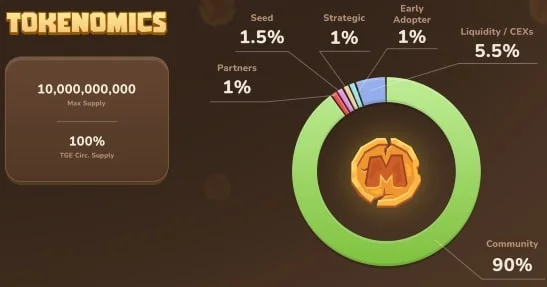Bitcoin FintechZoom: Embracing a Brighter Financial Future
Welcome to Bitcoin FintechZoom! Imagine a world where money isn’t just coins or bills, but a digital treasure you can send with a click. Bitcoin is a special kind of online money that’s changing how we think about spending and saving. It’s not just for techies; anyone can join this exciting adventure!
Here, we’ll explore the ins and outs of Bitcoin—how to use it, invest in it, and understand what makes it so unique. From buying snacks to dreaming big about your financial future, Bitcoin offers endless possibilities. So, get ready to dive into the thrilling world of digital currency and discover how it can change your life.
Understanding Bitcoin Basics
Bitcoin is the first decentralized digital currency, created in 2009 by an anonymous person or group known as Satoshi Nakamoto. Unlike traditional currencies controlled by governments, Bitcoin operates on a technology called blockchain, a public ledger that records all transactions securely and transparently. This means that anyone can view the history of Bitcoin transactions, making it a more accountable form of currency.
What sets Bitcoin apart is its limited supply. There will only ever be 21 million Bitcoins in existence, which introduces an element of scarcity. This scarcity can drive value, as more people recognize Bitcoin’s potential as a store of value similar to gold. Its unique characteristics have sparked a global movement, with individuals and institutions alike starting to take notice.
Another important aspect of Bitcoin is its accessibility. Anyone with an internet connection can buy, sell, and trade Bitcoin. This democratizes financial access, particularly for those in regions with underdeveloped banking systems. As the world moves toward a more digital future, understanding Bitcoin is becoming increasingly essential for everyone.
The Technology Behind Bitcoin
At the heart of Bitcoin is blockchain technology, which serves as a decentralized and immutable ledger. Each block in the chain contains a set of transactions, and once added, it cannot be altered. This ensures that every Bitcoin transaction is transparent and secure. By distributing the ledger across a network of computers (nodes), Bitcoin eliminates the need for a central authority, making it resistant to fraud and censorship.
Mining is a crucial process within this ecosystem, as it validates transactions and adds new blocks to the blockchain. Miners use powerful computers to solve complex mathematical problems, and in return, they earn newly minted Bitcoins. This process not only maintains the integrity of the network but also introduces new currency into circulation, making mining a key component of Bitcoin’s economic model.
The technological innovations behind Bitcoin have paved the way for countless other cryptocurrencies and blockchain applications. As more people explore this space, it’s clear that the underlying technology holds the potential to revolutionize various industries, from finance to supply chain management. Understanding how Bitcoin works is crucial for anyone looking to navigate the evolving digital landscape.
Investing in Bitcoin

Investing in Bitcoin has gained popularity as individuals and institutions seek new ways to diversify their portfolios. Unlike traditional assets, Bitcoin operates independently of central banks, which can make it an attractive option during times of economic uncertainty. However, potential investors should approach it with caution, as the price can be highly volatile.
To invest in Bitcoin, one typically starts by creating an account on a cryptocurrency exchange, where they can buy, sell, or trade Bitcoin for other cryptocurrencies or fiat currency. Various wallets are available for storing Bitcoin, ranging from online wallets that provide quick access to hardware wallets that offer greater security. Understanding the different storage options is essential for protecting one’s investment.
Investors should also stay informed about market trends and news, as these can significantly impact Bitcoin’s price. Resources like Bitcoin FintechZoom provide valuable insights into market dynamics, helping investors make informed decisions. As more institutions begin to adopt Bitcoin, its role in the financial landscape continues to evolve, making it a captivating subject for those looking to invest.
Bitcoin and Regulation
As Bitcoin gains traction, governments and regulatory bodies are grappling with how to approach this new digital currency. Some countries have embraced Bitcoin, recognizing its potential to drive innovation and economic growth. Others have taken a more cautious stance, implementing regulations to prevent fraud and protect consumers.
Regulation can be a double-edged sword. On one hand, clear guidelines can foster trust and attract institutional investment. On the other, overly stringent regulations may stifle innovation and push cryptocurrency activities underground. The challenge lies in finding a balance that promotes growth while safeguarding the interests of users.
The global nature of Bitcoin adds another layer of complexity to regulation. Different countries have varying approaches, leading to a patchwork of rules that can confuse investors and users alike. Staying updated on regulatory developments is essential for anyone involved in the Bitcoin space, as changes can have immediate implications for market dynamics.
The Future of Bitcoin
The future of Bitcoin is a hot topic among enthusiasts, investors, and analysts alike. Many believe that Bitcoin could become a mainstream form of currency, facilitating transactions around the world. This potential has sparked innovations in payment systems, making it easier for businesses to accept Bitcoin as a form of payment.
However, challenges remain. Scalability is one concern, as the Bitcoin network can experience congestion during periods of high demand, leading to slower transaction times and higher fees. Solutions like the Lightning Network are being developed to address these issues, aiming to enhance Bitcoin’s usability for everyday transactions.
As Bitcoin continues to evolve, its role in the financial ecosystem will likely expand. With increasing institutional adoption and growing interest from retail investors, Bitcoin is poised to remain a significant player in the world of finance. Understanding these trends will be crucial for anyone looking to navigate the future landscape of digital currency.







